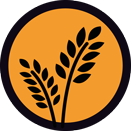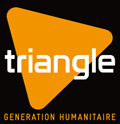AREA OF EXPERTISE

Food security and livelihoods

AREA OF EXPERTISE

Food security and livelihoods
FUNDING


Based on the latest United Nations Crop and Food Security Assessment Mission report, the food production in DPR of Korea (or DPRK) is focused on increasing the production of crops. Even so, diets for a main part of the population present deficiencies in proteins, lipids and micro-nutriments. Access to animal proteins is infrequent and inadequate, the provision of animal products being sporadic, depending on seasonal availability and provided in very low quantities.
Access to food is also impacted by the coverage of the Public Distribution System (PDS). Indeed, the majority of DPRK population relies on this PDS for the provision of its staple food. Consequently, DPRK people experience a high vulnerability as PDS functions very erratically (70% of the population are PDS-dependent).
In DPRK, school is compulsory from 6 years old. Before their integration to the school system, children who cannot stay at home during the day go to some preschool institutions (nurseries for the children between 0 and 4 years old and kindergarten for the children between 5 and 6 years old). These preschool institutions are named « Bo-Yuk-Ki-Kwan », meaning « care centres for the children ». These institutions are managed either by the neighbourhood committees (in urban areas only) or by an official public administration (at the level of hospitals, farms, industrial centres…).
In rural areas, nurseries and kindergarten depend most of the times on a cooperative farm. Although the children diet was more elaborated in towns than in countryside until the beginning of the 90s, this situation switched since then, farms delivering straight to the rural institutions, bypassing the PDS. The production units in charge of the food supplies for the child institutions (the cooperative farms) are largely unsupported and face low and irregular productions and thus are far to achieve their goal. As a consequence, essential needs of the children in institutions remain uncovered and their diet lacks diversity and quantity.
To increase the food security of the children dependent on social institutions, the action aims at improving their food availability, accessibility and use, by focusing on the development of a sustainable innovative aquaculture in DPRK. As such, a research farm in Pukchang county (South Pyongyang province) has been selected to experiment new technologies and practices in order to improve the fish production.
The project will use a comprehensive approach between:
The targeted area is a mountainous county, with difficulties to access, impeding the food transportation from out of this region, and some current poor conditions for food production. Indeed, added to the usual lack of agricultural equipment observed throughout the country, the Pukchang county faces a lack of agricultural lands due to the presence of mines and a thermal centre in the area. The county is thus more vulnerable on the food productions’ shortage than other DPRK counties. The use of specific local resources aquaculture production will then contributes to increase the global food consumption of the population of this county.
This project fits then with the global objective of the enhancement of resilience to food shocks for food insecure people with a particular attention to promote some nutrition sensitive activities and policies and to encourage sustainable and resilient small scale aquaculture practices.
Since 1998, GxABT/ULg and VNUA have developed a complementary expertise in aquaculture and its extension services to smallholders. The partnership between an official Korean body, the BoA, and these two research universities has started being built on by sharing contacts.
In February 2017, after a mission was conducted in Pukchang county (South Pyongan province, DPRK) the ULg, the BoA and TGH took the opportunity to better define and promote a collaboration in the field.